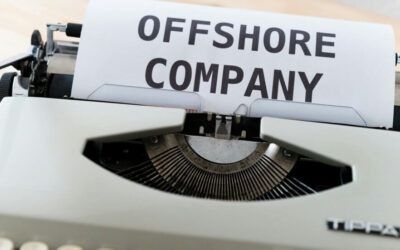Introduction
Setting up an offshore corporate bank account may offer many advantages for you or your company but it is important to ensure that these are not offset by fees and charges.
While you may have completed thorough research into the benefits and location of an offshore account, are you sure that the fees and charges of the bank you have chosen are going to make the account feasible?
It is vital to analyse and compare different banks and their fees before committing to an offshore banking provider.
Key factors to take into account include maintenance charges, transaction fees, currency exchange rates, online banking capabilities, customer support, and possible tax liabilities.
Offshore Corporate Banking Fees and Charges
Offshore company banking fees and charges can vary depending on the specific bank and jurisdiction. However, there are some common types of charges associated with offshore banking.
1. Account Setup Fee
This is an initial fee charged by the bank to set up the offshore company’s bank account.
2. Annual Account Maintenance Fee
Most offshore banks charge an annual fee to maintain the offshore company’s bank account. This fee covers administrative costs and account management services.
3. Transaction Fees
Offshore banks frequently charge fees for several types of transactions, such as inbound and outbound bank transfers, EFTs and cheque deposits. These fees can be a fixed amount per transaction or a percentage of the transaction value.
4. Currency Conversion Fees
If you carry out transactions in currencies other than the account’s main currency, the bank may charge a fee for converting funds. Typically, this fee is a percentage of the transaction amount.
5. ATM Fees
When using ATMs to withdraw cash or conduct other banking transactions, there may be charges associated with these services. These charges may include both commissions from the offshore bank and commissions imposed by the ATM provider.

6. Compliance Fees
- They may charge additional fees for services such as due diligence checks, know-your-customer (KYC) procedures or anti-money laundering (AML) compliance.
Additionally, some banks can charge fees for providing monthly or quarterly statements, providing an overview of activities balances, and transactions on the account. Likewise, if your offshore company’s account balance falls below zero or exceeds an authorised overdraft limit, the bank may charge fees.
These fees and charges can vary significantly depending on the financial institution, jurisdiction, account type, and the volume of transactions.
Here are our top three countries for offshore banking with data on the banking taxes and charges that may have to be paid Rules and regulations are constantly evolving so we can only provide some general guidelines to follow.
Singapore
In Singapore, offshore banking fees and charges vary depending on the bank, type of account, and services chosen.
Typically, account opening fees range from SGD 500 to SGD 2,000, while maintenance fees can range from SGD 500 to SGD 2,500 per year.
Transaction fees for wire transfers can range from SGD 25 to SGD 100 per transaction, while foreign currency exchange fees may be around 0.5% to 1% of the transaction amount. Minimum balance requirements can vary significantly, with some banks setting it at SGD 10,000 or higher.
Belize
In Belize, the bank account opening fees range from USD 500 to USD 2,000. Annual maintenance fees may vary between USD 300 and USD 1,000.
Transaction fees for wire transfers within Belize can range from USD 25 to USD 75 per transaction. Foreign currency exchange fees may vary between 0.5% and 1.5% of the transaction amount.
Minimum balance requirements can differ significantly, but they are often set at USD 1,000 or higher.
Hong Kong
This jurisdiction boasts the largest financial market in Asia and is one of the safest places to do your banking.
Regarding the banking fees and charges, some common fees include an account opening fee ranging from HKD 1,000 to HKD 5,000.
Annual maintenance fees can be around HKD 2,000 to HKD 5,000, while transaction fees for wire transfers typically range from HKD 150 to HKD 500 per transaction.
Foreign currency exchange fees may be around 0.1% to 1% of the transaction amount. Minimum balance requirements vary by bank and can range from HKD 10,000 to HKD 500,000 or more.
In order to obtain up-to-date fee information, it is advisable to directly consult with the offshore banks in these countries or to book a free consultation with our team now.
Due Diligence
Remember to conduct due diligence on the jurisdiction and bank you select. Thid was you can understand the risks involved and comply with all legal and regulatory requirements to ensure a legitimate and compliant offshore banking experience.
Being aware of the fees and charges associated with offshore banking helps you make informed decisions and optimize your financial management.
You can make the first step on your financial journey by getting in touch with our expert team to ensure your funds are ready to be placed in offshore banks and to benefit from new opportunities.
If you wish to consider the options available based on your current situation, do not hesitate to book a free consultation with our team now.
Disclaimer
Widelia and its affiliates do not provide tax, investment, legal or accounting advice. Material on this page has been prepared for informational purposes only, and is not intended to provide, and should not be relied on for, tax, investment, legal or accounting advice. You should consult your own tax, legal and accounting advisors before engaging in any transaction. Please consult https://widelia.com/disclaimer/ for more information.









